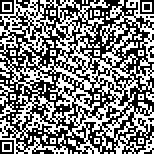| 摘要: |
| [摘要] 目的 探究射频热疗联合化疗治疗恶性消化道肿瘤的临床疗效及安全性,分析其对患者消化道症状、血清肿瘤标志物的影响。方法 选取2014-05~2015-12该院收治的恶性消化道肿瘤患者82例,随机分为对照组(n=41)和观察组(n=41)。对照组给予常规化疗方案治疗,观察组在对照组的基础上联合射频热疗治疗,4周为1个疗程。治疗3个疗程后,比较两组临床疗效以及治疗前后两组消化道症状改善情况,另检测两组治疗前后血清肿瘤标志分子水平的变化,统计并分析治疗期间两组不良反应发生情况。结果 观察组临床疗效优于对照组(P<0.05)。与治疗前比较,治疗后两组食欲减退、恶心呕吐、吞咽不适、胃腹痛及腹泻等症状评分均明显降低(P<0.05或P<0.01),但治疗后两组间上述症状评分差异均无统计学意义(P>0.05)。治疗后两组血清癌胚抗原(CEA)、糖类抗原125(CA125)、糖类抗原19-9(CA19-9)及癌抗原72-4(CA72-4)水平均显著降低(P<0.01),且观察组显著低于对照组(P<0.01)。治疗后两组神经毒性、白细胞减少、胃肠道反应及肝功能损害等不良反应发生率比较差异均无统计学意义(P>0.05)。结论 射频热疗联合化疗可显著改善恶性消化道肿瘤患者消化道不适症状,有效降低患者血清肿瘤标志分子水平,且不会增加不良反应,具有明显协同作用,疗效显著优于单用化疗。 |
| 关键词: 恶性消化道肿瘤 射频热疗 化疗 消化道症状 不良反应 |
| DOI:10.3969/j.issn.1674-3806.2017.12.09 |
| 分类号:R 735 |
| 基金项目: |
|
| Clinical application of radiofrequency thermotherapy in combination with chemotherapy in malignant gastrointestinal tumors |
|
ZHAO Sheng-nan, XIA Xing-zhou, SI Yuan-fang, et al.
|
|
Department of Gastroenterology, the Fifth Affiliated Hospital of Zhengzhou University, Henan 450052, China
|
| Abstract: |
| [Abstract] Objective To evaluate the short-term efficacy and safety of radiofrequency hyperthermia combined with chemotherapy in the treatment of advanced gastrointestinal cancer,and to analyze the effect of radiofrequency hyperthermia and chemotherapy on the symptoms of digestive tract and serum tumor markers.Methods Eighty-two patients with malignant gastrointestinal tumors were collected in our hospital from May 2014 to December 2015, and were randomly divided into the control group(n=41) and the observation group(n=41). The control group was given conventional chemotherapy treatment, and the observation group received the same treatment as the control group plus radiofrequency hyperthermia therapy. Both of the two groups were treated for 4 weeks for 1 course. The clinical efficacy, the improvement of gastrointestinal symptoms,the changes of serum levels of tumor markers and the incidence of complications were compared between the two groups 3 courses after the treatment.Results The curative effect of the observation group was better than that of the control group(P<0.05). Compared with those before treatment, the scores of losing appetite, nausea and vomiting were significantly lower after treatment in both of the two groups(P<0.05 or P<0.01), however, there were no significant differences in these scores between the two groups after treatment. After treatment, the levels of serum CEA, CA125, CA19-9 and CA72-4 in the two groups were significantly lower than those before treatment(P<0.01). There was no significant difference in the incidence of adverse reactions such as neurotoxicity, leukopenia, gastrointestinal reaction and liver function damage between the two groups after treatment(P>0.05).Conclusion Radiofrequency hyperthermia combined with chemotherapy can significantly improve the gastrointestinal symptoms, effectively reduce the levels of serum tumor markers but does not increase the adverse reactions in the patients with gastrointestinal cancer, which has significant synergies and better clinical effect than chemotherapy alone. |
| Key words: Malignant gastrointestinal tumors Radiofrequency thermal treatment Chemotherapy Gastrointestinal symptoms Adverse reactions |

